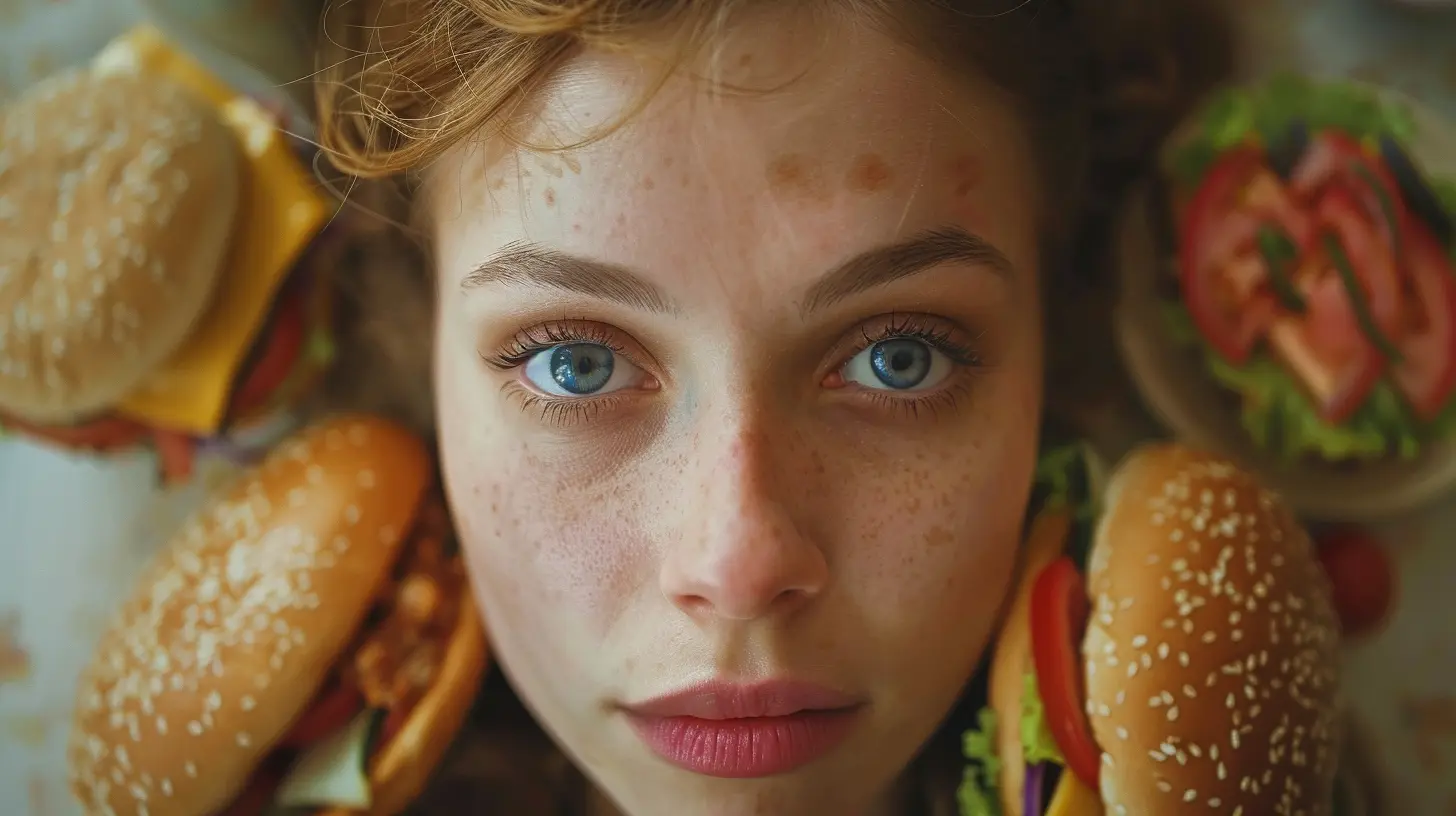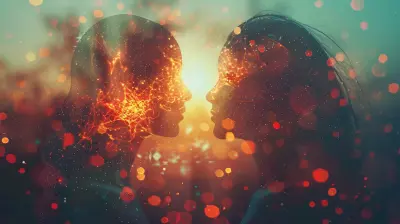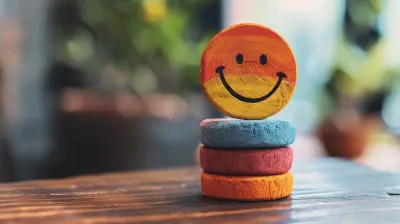13 December 2024
Have you ever stood in front of the mirror and felt uncomfortable with what you saw? For many people, this isn't just a passing feeling. It can be a deep-rooted struggle that affects how they see themselves and, in some cases, leads to unhealthy behaviors like eating disorders. But what exactly is the connection between body image and eating disorders? Why do so many people, especially young individuals, face this battle? Let’s dive into the complex relationship between body image and eating disorders, exploring the causes, consequences, and ways to foster a healthier mindset.

What Is Body Image?
Defining Body Image
Body image refers to how you perceive your own body and how you think others perceive you. It’s the mental picture you have of your appearance, and it can be influenced by a variety of factors like personal experiences, media, culture, and social interactions.For some, body image is a positive experience. They feel good about their appearance and are confident in their skin. For others, however, body image can be negative, leading to feelings of shame, insecurity, and dissatisfaction. Unfortunately, negative body image is quite common, especially in today's world where social media constantly bombards us with images of "perfection."
The Role of Media in Shaping Body Image
Have you ever scrolled through Instagram and felt like everyone else seems to have a perfect body? Social media, magazines, movies, and advertisements often portray an unrealistic standard of beauty. This constant exposure to edited and filtered images can make you feel like you’re falling short. Over time, this can distort your sense of self-worth and lead to a negative body image.But it’s not just social media. Cultural norms and societal expectations also play a huge role. Certain body types are often glorified, while others are marginalized. This can make anyone feel like they need to change who they are to fit a mold—whether it's losing weight, gaining muscle, or "toning up."

How Negative Body Image Leads to Eating Disorders
What Are Eating Disorders?
Eating disorders are serious mental health conditions that revolve around an unhealthy relationship with food and body image. They are not just about eating too much or too little. They involve extreme behaviors, thoughts, and emotions related to food, weight, and body shape. Some of the most common eating disorders include:- Anorexia Nervosa: An intense fear of gaining weight, leading to severe food restriction.
- Bulimia Nervosa: A cycle of binge eating followed by purging (vomiting, excessive exercise, or using laxatives) to prevent weight gain.
- Binge Eating Disorder: Eating large amounts of food in a short period, often accompanied by feelings of guilt or shame.
These disorders are complex and can be life-threatening, impacting both physical and mental health.
The Link Between Body Image and Eating Disorders
So, where does body image fit into all of this? Research shows that a negative body image is one of the leading risk factors for developing an eating disorder. When someone is overly critical of their body, they may resort to extreme measures to change it. This can manifest in behaviors like restricting food intake, purging, or binge eating.For instance, someone with anorexia nervosa may look in the mirror and see themselves as overweight, even if they are dangerously underweight. This distorted body image fuels their desire to continue losing weight, regardless of the health risks involved. Similarly, someone with bulimia may feel out of control after binge eating and purge to "undo" the damage, driven by a fear of gaining weight.
Negative body image doesn’t just lead to eating disorders; it can also perpetuate them. Once these harmful behaviors start, they can become a vicious cycle that’s hard to break. The more someone engages in disordered eating, the more their body image may suffer, and the more they feel the need to continue those behaviors.

The Psychological Impact of Body Image and Eating Disorders
Emotional Consequences
Having a distorted body image can mess with your emotions. People who are dissatisfied with their bodies often struggle with:- Low self-esteem: When your worth is tied to your appearance, any perceived flaw can feel like a huge blow to your confidence.
- Depression and anxiety: Many people with negative body image also experience mood disorders. The constant pressure to look a certain way can lead to feelings of hopelessness and anxiety.
- Social isolation: Negative body image can make you feel self-conscious in social situations. You might avoid going out with friends, skip events where food is involved, or withdraw from relationships because of how you feel about your body.
Physical Consequences
The physical toll of eating disorders is devastating. They can lead to malnutrition, heart problems, digestive issues, and even death. Each type of eating disorder carries its own set of risks, but all of them can wreak havoc on the body. What’s even more troubling is that these physical consequences can happen quickly, often before someone realizes they have a problem.
Factors That Contribute to Negative Body Image
1. Social Comparison
It’s human nature to compare ourselves to others. But when it comes to body image, these comparisons can be damaging. Whether it's comparing yourself to celebrities, influencers, or even friends, these comparisons often lead to feelings of inadequacy. You might think, “Why don’t I look like that?” or “I’ll never be as fit as them.” These thoughts can fuel a negative body image, which in turn can trigger unhealthy behaviors like disordered eating.2. Perfectionism
Are you a perfectionist? Perfectionism is another factor that can contribute to negative body image and eating disorders. Perfectionists often set impossible standards for themselves, especially when it comes to their appearance. They may feel like they need to have the "perfect" body in order to be accepted or loved. This constant striving for perfection can lead to unhealthy eating habits and extreme measures to change their body.3. Trauma and Abuse
While not always the case, some individuals develop negative body image and eating disorders as a response to trauma or abuse. Sexual abuse, bullying, and emotional neglect can deeply affect how someone views their body. In some cases, disordered eating can be a way to cope with the pain or feel a sense of control over their life.4. Family Influence
Believe it or not, family dynamics can also play a role in shaping body image. Growing up in a household where there’s constant talk about dieting, weight loss, or appearance can make someone hyper-aware of their own body. Parents who are overly critical of their own appearance or their children’s appearance can inadvertently contribute to the development of body dissatisfaction.How to Develop a Healthy Body Image
1. Challenge Unrealistic Beauty Standards
The first step in developing a healthier body image is to recognize that the standards set by society and the media are often unrealistic. Remember that most of the images you see on social media are heavily edited or filtered. No one looks perfect all the time—not even the influencers or models you admire.2. Practice Self-Compassion
Instead of being your own worst critic, try practicing self-compassion. Treat yourself with the same kindness and understanding that you’d offer a friend. If you catch yourself thinking negative thoughts about your body, challenge those thoughts. Ask yourself, “Would I say this to someone I care about?”3. Focus on What Your Body Can Do, Not Just How It Looks
Your body is more than just an ornament to be admired. It’s a powerful tool that allows you to experience life. Focus on what your body can do, whether that’s running, dancing, hiking, or simply getting through your day. By shifting your focus from appearance to function, you can start appreciating your body for all the amazing things it does for you.4. Seek Professional Help
If you’re struggling with body image or suspect you have an eating disorder, seeking help from a therapist or counselor can be life-changing. Cognitive-behavioral therapy (CBT) is one effective treatment for improving body image and addressing eating disorder behaviors. A mental health professional can help you reframe negative thoughts and develop healthier coping strategies.Conclusion
The connection between body image and eating disorders is undeniable. A distorted or negative view of your body can lead to disordered eating patterns, which can have serious consequences for both your physical and mental health. But it’s important to remember that recovery is possible. By challenging societal standards, practicing self-compassion, and seeking help when needed, you can start to build a healthier relationship with your body and food.If you or someone you know is struggling with body image or an eating disorder, you’re not alone. Reach out to a healthcare professional or therapist to get the support you deserve.










Cruz Simmons
Understanding our bodies is a journey, not perfection!
February 3, 2025 at 4:21 AM